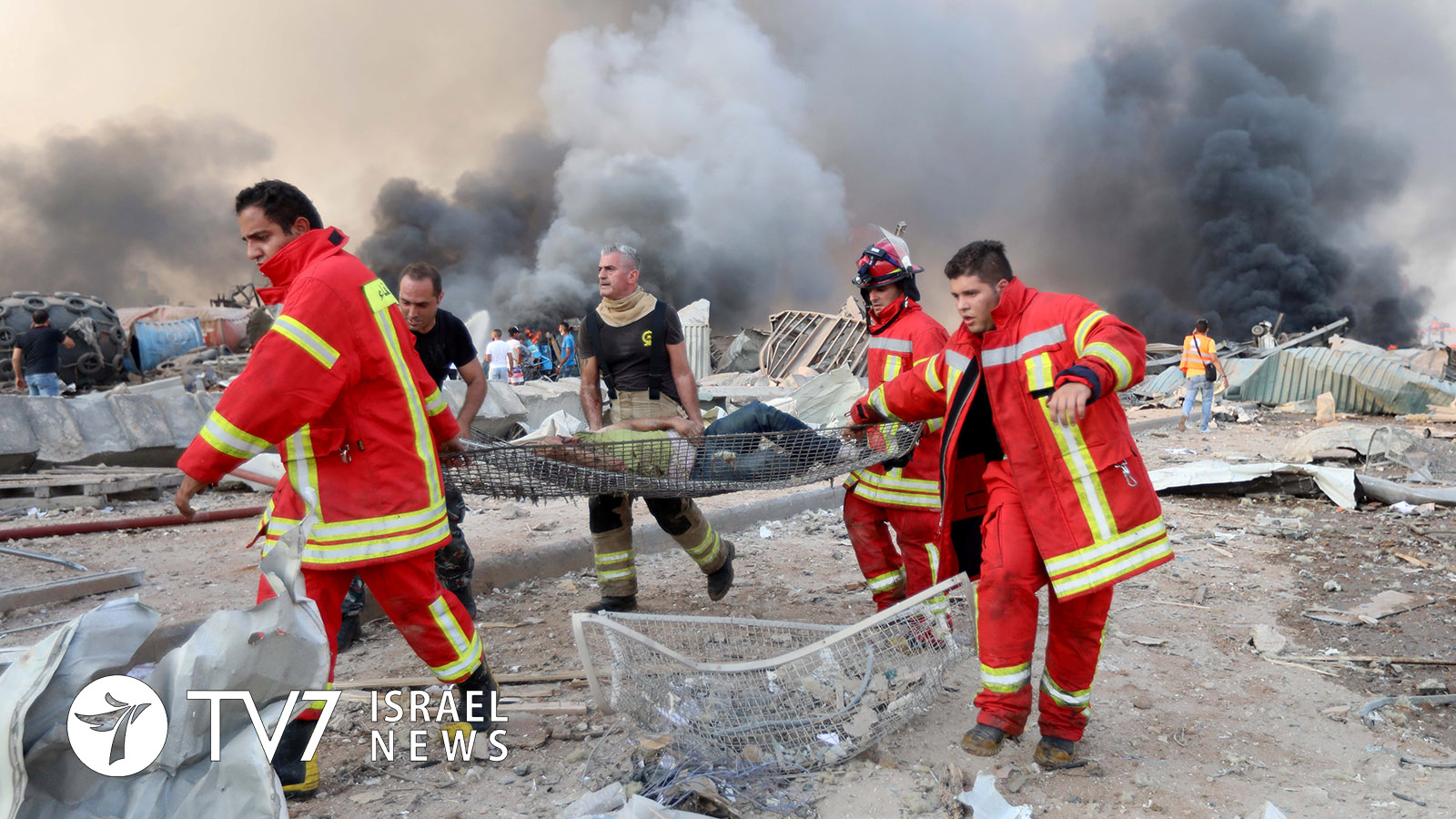A powerful explosion tore through the capital of Israel’s northern neighbor Lebanon, claiming the lives of at least 100 individuals and wounding more than 4,000 others, with many still missing.
The deadly incident initially took place at Hangar 12 at the Beirut Port, where numerous cargo warehouses are situated. Footage from the initial blaze clearly showed that small explosions were detonated before the massive eruption occurred and swept throughout a large portion of the city.
Lebanese health authorities, already struggling to cope with the coronavirus pandemic and a shortage of funds amid a deep-rooted national economic crisis, have been seemingly overwhelmed with the influx of thousands of patients at medical centers throughout the capital city – with several hospitals rendered incapacitated.
The Spokesman for Disaster Management of the Beirut Saint George Hospital, George Saad, told Reuters that his facility is “unsafe” and in a “critical” state with falling ceilings; and effectively shut down amid efforts to treat 200 of the injured who included 4 nurses.
Thousands of injured civilians arriving at hospitals were reportedly forced to wait for hours before receiving proper medical attention. Some of those waiting recounted the moments before the blast, confirming that smaller explosions occurred prior to the major blast that rocked the city. Beirut resident Joel Shamoun said, “We were at home, we heard what sounded like fireworks, we thought it was a container in the port that was on fire and they weren’t able to put it out, a few seconds later we were flying through the air.” Fareed Shaarawi said that after hearing the first explosion, “we went to see what happened, I didn’t have time, I didn’t realize there would be a second explosion, the glass exploded in front of me.”
Capital resident Philippe Aractingi said that yesterday’s explosion inflicted the same level of damage as 30 days of fighting during the 2006 Hezbollah war with Israel (known in Israel as the Second Lebanon War). “It is a catastrophe; I’ve never seen something like that,” said Aractingi, who added that he had filmed the 2006 conflict.
Some 250,000 people have been rendered homeless by the blast, say local authorities. During a tour of the afflicted districts of the city, Mayor Jamal Itani estimated the cost of rebuilding destroyed infrastructure amounts to “billions of dollars” at the port alone.
In a televised address to the nation, Lebanese Prime Minister Hassan Diab declared three days of public mourning. “It is a sad day, Beirut is afflicted, Lebanon is hit by a catastrophe, yes it is a big national catastrophe; the scenes we are seeing express the tragedy and reflect the size of the disaster,” said the Lebanese Premier.
Diab announced that it “is a national commitment” and “promise to the martyrs and to the wounded” that the incident “won’t pass without accountability, those responsible will pay the price for what happened;” and that “facts will be revealed about this dangerous warehouse that has been there since 2014.”
According to initial information from an ongoing investigation, Hangar 12 contained “highly explosive material” that was seized by Lebanese authorities years ago, said Interior Minister Mohammad Fahmi, although he stopped short of providing additional information on what had been stockpiled at the site.
Meanwhile, U.S. President Donald Trump claimed that his top military generals believe that the explosion that rocked Beirut was deliberate. “This was not some kind of a manufacturing explosion type of event. This was a seems to be according to them – they would know better than I would – but they seemed to think it was an attack. It was a bomb of some kind. Yes,” he commented.
Unlike the U.S. leader’s assessment, Israel’s defense and intelligence establishment has rejected the possibility that the deadly blast in Beirut was the result of an attack. According to one official, “the warehouse was known to contain old weaponry which most probably erupted due to negligence of Lebanese authorities.”
It is imperative to underscore that despite the heightened tensions between Israel and the Lebanese Iranian-proxy Hezbollah along the border, Israeli officials immediately highlighted that the Jewish State was not behind the explosion.
Furthermore, in light of the evident humanitarian crisis in Lebanon, the Israeli Defense and Foreign Ministries offered the Lebanese government – via international intermediaries – medical and humanitarian aid, as well as immediate emergency assistance.
Israeli President Reuven Rivlin conveyed a message to Israel’s northern neighbor, writing on his Twitter account “We share the pain of the Lebanese people and sincerely reach out to offer our aid at this difficult time.”
